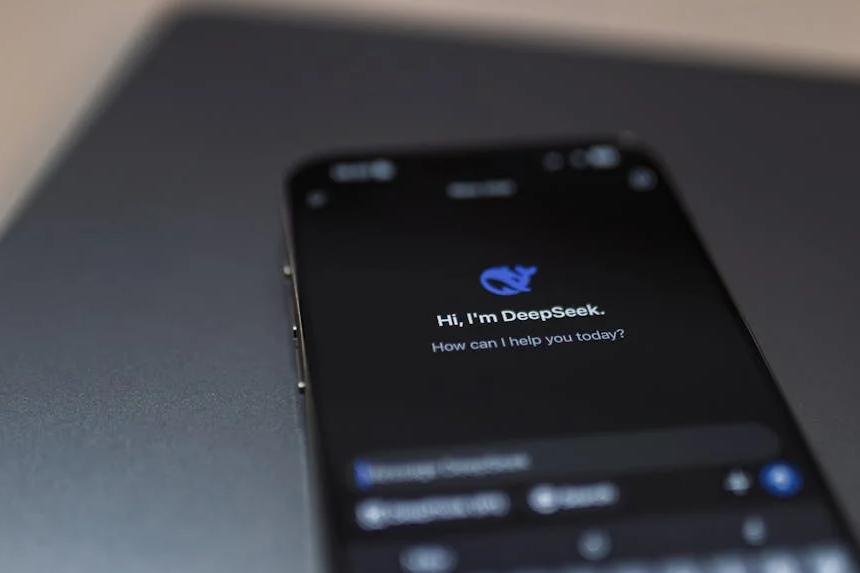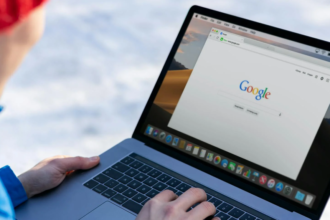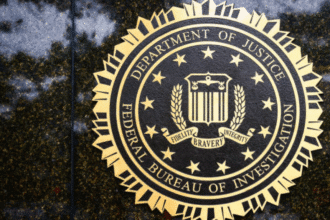There is a tangible air of excitement as world leaders, tech giants, and AI specialists get ready to meet in Paris. Against the backdrop of the Grand Palais, the two-day Artificial Intelligence Action Summit seeks to evaluate the state of AI and establish goals for the future. Beyond the formal agenda, though, a more pressing discussion is being held over China’s DeepSeek and its implications for the global AI hierarchy.
Is America Losing Its Lead in AI?
The dynamics of AI power are about to undergo a significant change. The industry has been rocked by DeepSeek, a Chinese AI helper that is incredibly effective. The US, which was once seen to be the unbeatable leader in AI, is now facing challenges to its hegemony.
According to Professor Gina Neff of the University of Cambridge’s Minderoo Centre for Technology and Democracy, “There is currently a vacuum for global leadership on AI.”
According to Southampton University professor Dame Wendy Hall, “DeepSeek made everyone realize that China is a force to be reckoned with.” We don’t have to just follow the advice of the large West Coast corporations. We require international discussion.
Can Europe Take the Lead in AI?
The meeting offers Europe a chance to establish itself as a serious player in the AI space. A representative of the French government called the incident a “wake-up call” for France and the EU, stressing the importance of making sure the AI revolution doesn’t “pass it by.”
Prime Minister Narendra Modi has confirmed his attendance, marking a significant shift from past summits, demonstrating India’s recognition of this crucial time. The US is indicating its intention to defend its stance by sending prominent officials, such as Google CEO Sundar Pichai, OpenAI CEO Sam Altman, and Vice President JD Vance.
British Prime Minister Keir Starmer is one prominent figure who has apparently chosen not to attend. Despite not being on the official guest list, Elon Musk is anticipated to contribute his opinions to the talks in his own unique manner.
Is China the Honorary Guest Now?
The Paris meeting stands in sharp contrast to previous AI summits. China’s Vice Minister for Science and Technology, Wu Zhaohui, attended the first AI Safety Summit in the UK in 2023 but was reportedly kept at a distance because of national security concerns.
But China seems to be at the forefront of the discussion this time. One of the nation’s top delegates, President Xi Jinping’s close supporter Ding Xuexiang, is anticipated to be present. Liang Wenfeng, the creator of DeepSeek, may also be present, which would strengthen China’s position as a major player in AI debates.
Was it True That DeepSeek Was Successful at a Fraction of the Price?
The story of DeepSeek’s ascent, which is frequently presented as a David versus. Goliath scenario, merits more investigation. The CEO of the AI company Anthropic, Dario Amodei, has questioned if DeepSeek was indeed constructed at a significantly lower cost than its American competitors.
What is known is that DeepSeek made use of open-source AI architectures created by Meta and Nvidia chips, although older ones because of US sanctions. Additionally, OpenAI has expressed worries that rivals are utilizing its research to improve their own models. Given that OpenAI uses protected content to train its systems, creative sectors have responded to this accusation with sarcasm.
In any case, DeepSeek’s success has unquestionably upended the AI market, devaluing some of the largest companies in the space by billions. In Paris, its impact is anticipated to be a hot topic of conversation.
Does AI Safety Remain a Top Concern?
Safety is just as much a topic in the AI discussion as competition. With talks focusing on existential risks presented by AI, the first AI summit in the UK notably highlighted safety in its title. This rhetoric caused excessive panic, according to some observers.
But the safety of AI is still a major worry. Misinformation, algorithmic biases, AI-controlled weapons, and the possibility of AI-generated cyberthreats are among the dangers.
Although these are “short-term risks,” AI pioneer Geoffrey Hinton cautions that they could not be sufficient to promote sustained international cooperation. Rather, he thinks the possibility of AI outsmarting humans and vying for dominance will be the ultimate unifying factor.
“Nobody wants AI to take over from people,” he says. “The Chinese would much rather the Chinese Communist Party ran the show than AI.”
Hinton makes the case that international collaboration on AI safety is just as important as nuclear deterrence was during the Cold War. “There’s no hope of stopping AI development,” he says. “What we’ve got to do is try to develop it safely.”
Will AI Safety Standards Become Binding After the Summit?
These worries are shared by Prof. Max Tegmark, who founded the Future of Life Institute. “Either we develop amazing AI that helps humans, or uncontrollable AI that replaces humans,” warns him. “We are unfortunately closer to building AI than to figuring out how to control it.”
Tegmark anticipates that the Paris summit will promote legally binding AI safety standards, similar to those in other high-risk sectors. The conference will serve as a critical litmus test for whether world leaders can actually agree on AI safety guidelines or if competing interests will win out, given how quickly AI is developing.
What Will the Paris Summit Leave Behind?
The AI landscape is reaching a turning point as international leaders gather in Paris. This meeting could shape the future of artificial intelligence due to China’s DeepSeek upending the industry, Europe’s revived aspirations, and urgent concerns about AI safety. It remains to be seen if it strengthens geopolitical divisions or promotes international cooperation.








